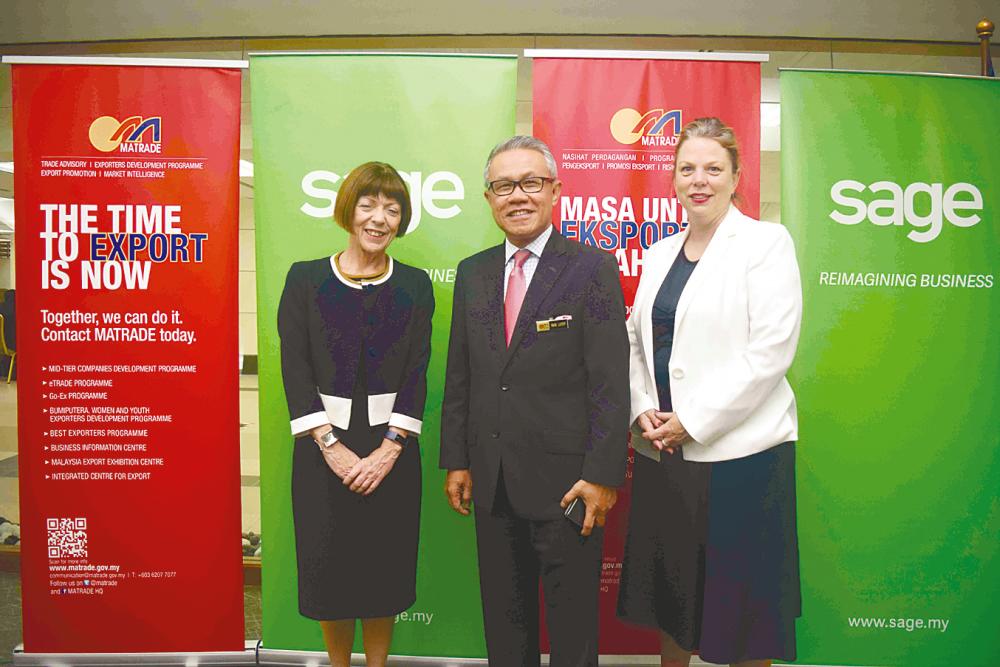PETALING JAYA: Most Malaysian businesses are positive on trade performance moving forward, despite global trade challenges, revealed the “We Power the Nation” study conducted by Sage.
The report, which explored the impact of international trade on Malaysia, showed that 59% or six out of 10 domestic businesses are positive that trade will increase in the next 12 months.
“This optimism is driven by healthy prior year performance and profit growth, as well as stronger inter-regional trading prospects,” said Sage Asia vice-president and managing director Arlene Wherrett.
Overall, Malaysia expects total exports to breach RM1 trillion in 2019, as projected by the International Trade and Industry Ministry (Miti) on the back of stronger exports of high valued products.
According to the survey, Malaysian businesses continue to rely on key trading partners such as China (43%), the US (27%) and Japan (26%) but given the global trade uncertainties, 68% expressed keen interest on exploring markets across Asia in the next 12 months.
“After Asia, Malaysian businesses are seeing Australasia as the next most sought-after market (32%), followed by Europe (30%). These findings suggest that efforts to facilitate future development of trade, be it through export promotion programs from the government or government affiliated organisations, as well as inter-region collaboration should focus on these continents,” said Wherrett.
The survey also revealed challenges and barriers to trade, with differing product standards seen as the primary concern by 33% of domestic players, followed by political uncertainty (32%) and jurisdictional compliance uncertainties (29%).
Meanwhile, half of local businesses said they are keen to adopt digital tools to support ease of market entry, ensure compliance with local regulation and help to remove complexities with 48% saying they would use e-commerce platforms, mobile payments (38%), cloud-based tools (34%) and artificial intelligence (27%) to facilitate international trade.
Some 46% said that mobile technologies are significant to the future of trade in the next five years.
Meanwhile, Malaysian businesses that are eyeing international markets are calling for government support whereby 43% have identified incentives and funding as a primary need.
This was followed by development of opportunities in international markets (35%), in terms of business matching and accredited networking programs, as well as the provision of better technology tools (31%) and the removal of trade barriers (30%).
Malaysia External Trade Development Corp (Matrade) CEO Datuk Wan Latiff Wan Musa, who urged companies to explore opportunities in non-traditional markets such as Africa, West Asia and Latin America, said that government agencies provide financial support in the form of grants and soft loans.
“What is equally important is for companies to develop an effective market access strategy that includes leveraging on the preferential tariff resulting from the 13 Free Trade Agreements (FTAs) that Malaysia has with our trading partners,” he said.
He urged Malaysian companies to build knowledge of market access strategy by attending Matrade trainings and workshops, and tapping into Matrade’s 46 global offices for information about compliance to standards in respective markets.










